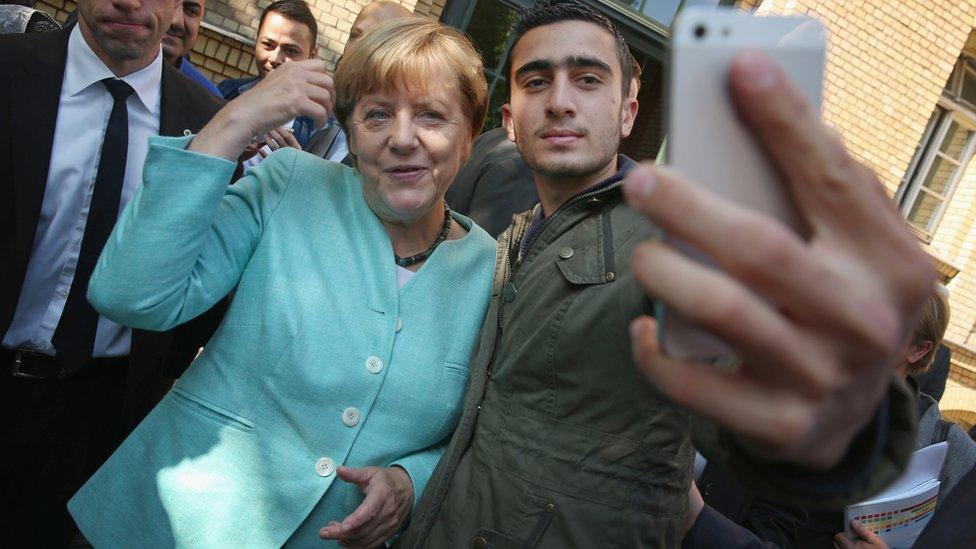'Selfie refugee' loses Facebook defamation case in Germany
- Published

Mr Modamani took the picture when Mrs Merkel she visited the Berlin shelter he was staying in
A Syrian refugee whose selfie with German Chancellor Angela Merkel went viral has failed in a legal bid to force Facebook to find and remove defamatory posts about him.
A court in Wurzburg ruled that Facebook was not obliged to seek out material falsely linking Anas Modamani to terrorism and violent crime.
Mr Modamani, 19, became a social media star after taking the photo in 2015.
But the photo later appeared in posts about terror attacks across Europe.
They included attacks in Brussels and on a Christmas Market in Berlin and crimes including an arson attack on a homeless man in Berlin.
France turns to Facebook over fake news
Facebook to tackle fake news in Germany
Facebook deleted some malicious posts but Mr Modamani wanted an injunction forcing the company to actively identify and remove such posts rather than wait for users to flag them.
However the Wuerzburg court ruled that although the posts were "undisputable defamation", Facebook had not created the slanderous content itself, and so was not required to actively seek and delete the posts.
Mr Modamani is taking German classes and working in a restaurant, and said the fake posts about him were damaging, AFP news agency reported.
Mr Modamani argued Facebook should do more than wait for users to identify defamatory posts
Lawyers for the social media giant had argued that, with billions of postings each day, the company would need "a sort of wonder machine" to detect each misuse. They said it was the individuals who posted the images who should be held responsible.
Mr Modamani's lawyer argued that Facebook had the technical ability to detect and block other content, such as pornography.
Facebook has faced criticism over its handling of fake news stories and recently launched filtering systems in the US, Germany and France.
It comes amid suggestions that fake news reports influenced the outcome of the US presidential election.
In France, Facebook has joined forces with Google and eight news organisations to launch fact-checking tools to root out fake news ahead of the country's presidential election in April.
Germany, which has elections in September, is considering fining Facebook for every fake news article it fails to remove.
- Published6 February 2017
- Published15 January 2017